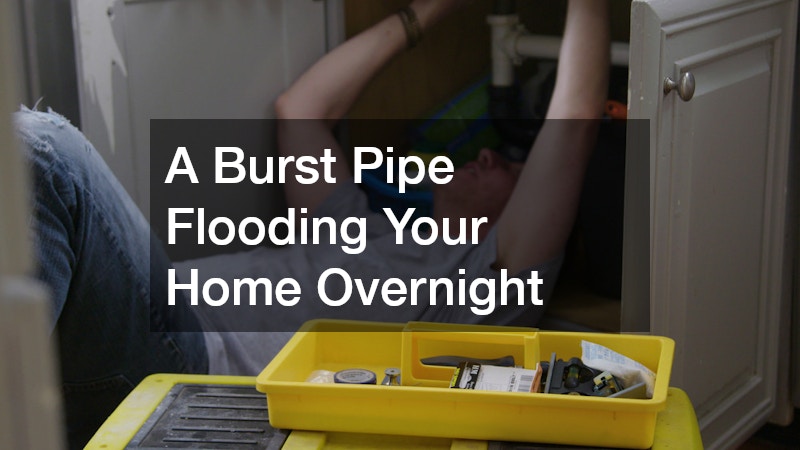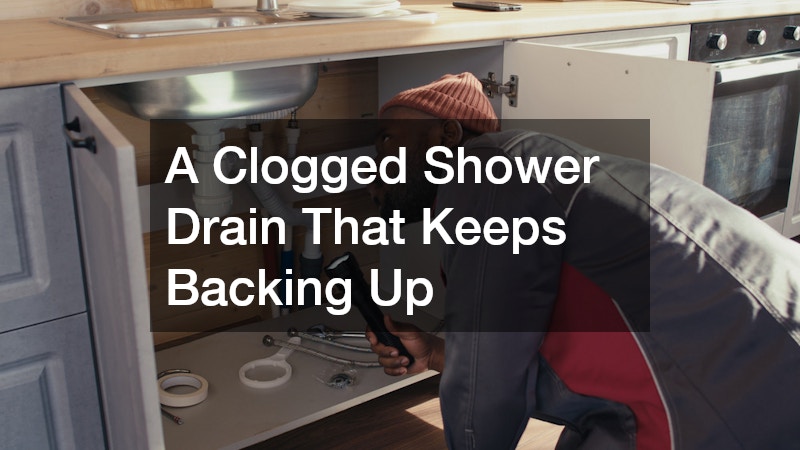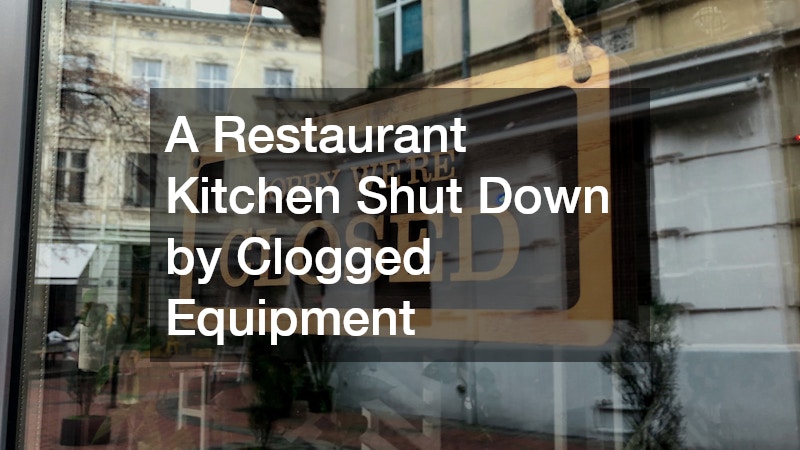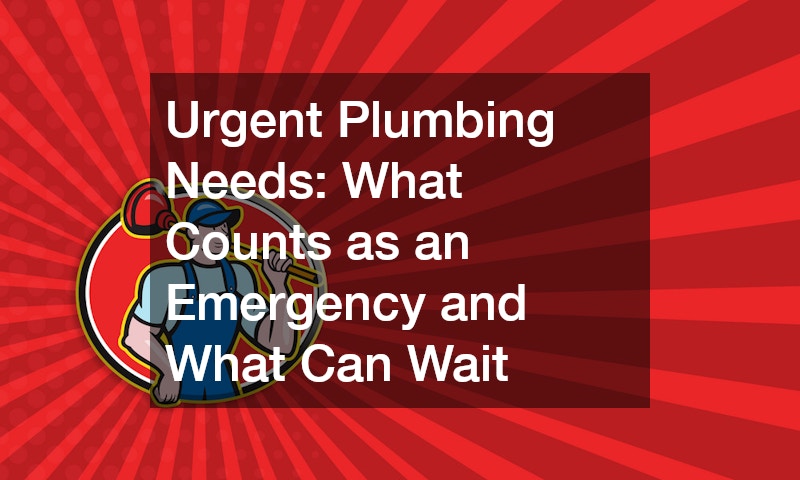Urgent Plumbing Needs: What Counts as an Emergency and What Can Wait
Plumbing is one of those essential parts of a home or business that often goes unnoticed until something goes wrong. When water flows smoothly, drains remain clear, and fixtures work as intended, people rarely think about the system behind the walls and beneath the floors. Yet, when issues arise, they often bring immediate stress and confusion. The hardest part isn’t always fixing the problem—it’s figuring out whether it requires immediate action or if it can wait until a scheduled service appointment.
Homeowners and business owners alike face this dilemma more often than they realize. A strange noise from a water heater, a dripping faucet, or even a drain that clears more slowly than usual can feel concerning. Still, not every issue demands the same level of urgency. Some situations, like a burst pipe or a gas leak, pose immediate threats to property and safety, requiring swift action. Others, such as minor leaks or slow drains, may be inconvenient but don’t necessarily require calling a local plumber in the middle of the night.
Understanding the difference is crucial. Calling for plumbing services at the wrong time can lead to unnecessary expenses, while waiting too long for a serious issue can cause extensive damage. Knowing what qualifies as an emergency helps people make confident decisions about protecting their homes and businesses without wasting time, money, or resources.
This guide explores common plumbing scenarios and explains which ones demand quick intervention and which can usually wait for regular business hours. By walking through examples—from flooding pipes to clogged sinks—it becomes easier to see the dividing line between true emergencies and manageable issues. The goal isn’t just to provide information, but to give peace of mind. When faced with a plumbing problem, no one should feel unsure about whether to pick up the phone right away or schedule a later appointment with professional plumbers.
With a clear understanding of different scenarios, property owners can act responsibly and effectively, reducing both stress and potential damage. It all comes down to distinguishing emergencies from minor inconveniences, and that’s what the following sections are designed to clarify.
A Burst Pipe Flooding Your Home Overnight
 Few situations match the panic of waking up in the middle of the night to find water pouring across your floors. A burst pipe can quickly cause extensive property damage, soaking flooring, walls, and even furniture within minutes. This scenario is the textbook example of an emergency, where delaying action isn’t an option. The longer water continues to flow, the greater the damage becomes, not just in terms of cost but also in potential health concerns from mold growth later on. Calling a local plumber immediately is critical to minimizing the damage.
Few situations match the panic of waking up in the middle of the night to find water pouring across your floors. A burst pipe can quickly cause extensive property damage, soaking flooring, walls, and even furniture within minutes. This scenario is the textbook example of an emergency, where delaying action isn’t an option. The longer water continues to flow, the greater the damage becomes, not just in terms of cost but also in potential health concerns from mold growth later on. Calling a local plumber immediately is critical to minimizing the damage.
In these moments, urgent plumbing intervention is absolutely necessary. Turning off the main water supply is the first step, but that doesn’t solve the problem entirely. A professional needs to identify the cause of the burst, repair or replace the damaged section, and inspect the surrounding system for weaknesses that could lead to additional failures. Acting quickly can mean the difference between a repair bill and a full-scale restoration project. Licensed plumbers often have the experience and equipment to handle these emergencies safely and efficiently.
A Slow Leak Inside Old Pipes That Needs Reinforcement
Not every leak presents itself dramatically. Sometimes, a homeowner may notice a water spot on a ceiling, a damp cabinet under the sink, or a faint dripping noise behind a wall. While these issues can seem minor, they still deserve attention. Slow leaks can cause hidden damage over time, weakening structures, encouraging mold growth, and raising water bills. Even a small leak left untreated can eventually lead to costly repairs, as moisture may seep into flooring, drywall, or insulation, creating problems that are more difficult to detect and remediate later. A residential plumber can assess the situation and recommend solutions.
Unlike the chaos of a burst pipe, this kind of problem typically doesn’t require immediate emergency service in the middle of the night. Scheduling a professional inspection within a reasonable timeframe is usually sufficient. However, it’s important not to ignore it altogether. What starts as a small drip can escalate if the pipe weakens further. Professionals may recommend reinforcement or techniques such as pipe lining to strengthen the system and prevent future emergencies. Regular monitoring and early intervention ensure that the plumbing system remains reliable and reduces the likelihood of unexpected, disruptive issues. Plumbing services can also provide ongoing maintenance plans to prevent future problems.
A Toilet Overflow That Won’t Stop Running
A toilet that won’t stop overflowing is more than just a nuisance—it can cause contamination and significant damage to floors if not addressed quickly. When water continuously runs onto the bathroom floor, it creates an unsanitary environment that can spread to other rooms. Plumbers can evaluate the problem and recommend repair options.
In this case, urgent plumbing support may be required depending on the severity. If shutting off the water valve behind the toilet stops the overflow, the issue can wait until a scheduled appointment. However, if the overflow continues despite attempts to stop it, or if multiple fixtures in the home back up simultaneously, it likely points to a bigger system failure that should be treated as an emergency. Either way, understanding the difference between a quick shut-off fix and a system-wide problem is key. Licensed plumbers have the tools to identify underlying issues efficiently.
A Lack of Hot Water on a Cold Morning

Losing hot water is inconvenient, especially when it happens unexpectedly before showers, laundry, or dishwashing. But is it always an emergency? The answer depends on the circumstances. Water heater installation or repair by experienced plumbers may be required if the issue is more serious.
If a household includes infants, elderly residents, or anyone with health conditions that require warm water for safe hygiene, then the situation becomes more urgent. Similarly, if the water heater is leaking or emitting strange smells, it indicates a potentially dangerous problem that shouldn’t wait. On the other hand, if the unit simply stops working without signs of leaks or electrical hazards, it may be possible to wait until normal business hours for professional repair or replacement. A local plumber or plumbing service can advise on the appropriate timing for service.
While not always an urgent plumbing crisis, water heater failures often require prompt attention to restore daily comfort and safety. In many cases, calling for advice over the phone can help determine if immediate service is necessary. Technicians may also walk homeowners through temporary measures, such as safely shutting off the unit, to prevent further issues while waiting for a repair or installation. Water heater installation services ensure the replacement is safe, efficient, and code-compliant.
A Gas Line Concern Requiring Immediate Attention
Gas line issues are never something to take lightly. A hissing sound near appliances, the smell of gas, or unexplained dizziness and nausea among occupants can indicate a dangerous leak. Unlike minor leaks or slow drains, this type of problem requires immediate evacuation and professional help. Licensed plumbers are trained to handle gas line repairs safely.
Gas leaks are considered one of the most serious forms of urgent plumbing situations because they pose risks not only to property but also to life. The first step is leaving the building immediately, followed by calling emergency services and then a licensed professional who specializes in gas line repairs. Waiting is not an option when it comes to gas-related concerns. If left unaddressed, even a small leak can lead to fire, explosions, or long-term exposure risks, so recognizing and responding quickly is absolutely critical. Plumbing contractors often have specialized tools for testing and repairing these dangerous leaks.
A Leaky Faucet That Drips All Weekend
Hearing the steady drip of a faucet can be frustrating, especially when it continues through a quiet weekend. While it may raise water bills and test patience, a dripping faucet isn’t usually an emergency. A residential plumber can handle this quickly during regular hours.
This is a case where urgent plumbing intervention is not required. Instead, it’s an inconvenience that can typically wait until the next available service appointment. However, homeowners should avoid ignoring it indefinitely. The wasted water adds up over time, and the underlying cause—whether worn washers, faulty cartridges, or loose connections—can worsen if left unresolved. Still, this is one of the clearest examples of a non-emergency issue. Fixing it promptly during business hours can prevent long-term water damage around the sink and ensure efficient use of water resources. Plumbing services also offer advice on small preventative fixes that save money.
A Clogged Shower Drain That Keeps Backing Up

Standing ankle-deep in water while showering is an unpleasant experience. A clogged drain can disrupt daily routines, and when left untreated, it can lead to further plumbing issues. Whether or not this situation counts as an emergency depends on its severity. Drain cleaning services provided by professional plumbers can resolve these blockages efficiently.
If water drains slowly but eventually clears, the problem may wait until normal service hours. However, if water refuses to drain at all or begins backing up into other areas of the home, it indicates a deeper blockage in the system. At that point, urgent plumbing attention may be justified to prevent further complications. Ignoring the problem can result in water damage to surrounding flooring or walls, as well as mold growth if standing water lingers for long periods of time. Local plumbers often have the tools to diagnose and prevent recurring clogs.
A Major Sewer Line Backup Affecting the Whole House
Few plumbing problems cause as much stress as a full sewer line backup. When wastewater begins flowing back into sinks, tubs, or toilets, it creates a hazardous environment that cannot be ignored. Professional plumbing contractors are essential in handling these scenarios safely.
This scenario always qualifies as urgent plumbing. The health risks associated with sewage exposure, combined with the potential damage to flooring and fixtures, make it necessary to call a professional immediately. Attempting to wait or manage the issue without proper equipment can worsen the situation. Sewer backups require specialized tools and expertise to clear safely and prevent recurrence. Additionally, delays can increase repair costs and make it harder to restore normal use of the home quickly, leaving families unable to function in their own space. Licensed plumbers can ensure the system is properly sanitized and restored.
A Kitchen Sink That Drains Slowly After Meals
A sink that drains sluggishly after meal prep or dishwashing is inconvenient but rarely an emergency. It often signals grease buildup, food debris, or minor clogs in the pipes. Drain cleaning services can handle these minor issues without requiring urgent calls.
In this case, urgent plumbing is not typically required. Scheduling a cleaning appointment is usually enough to restore proper function. Still, if ignored, these small clogs can become more serious, potentially leading to full blockages that demand immediate intervention. Regular maintenance helps prevent small inconveniences from turning into larger emergencies. In addition, consistent drain care can extend the lifespan of the plumbing system, saving homeowners from needing major repairs caused by long-term neglect or repeated buildup. Plumbers can also provide guidance on preventing grease and debris accumulation.
A Restaurant Kitchen Shut Down by Clogged Equipment

Commercial kitchens rely on efficient plumbing to stay in operation. When equipment such as grease traps becomes clogged, it can force a shutdown that affects business operations and customer service. Grease trap cleaning services are often required urgently to restore functionality.
For restaurant owners, this qualifies as an urgent plumbing need. The inability to prepare food safely or comply with health regulations makes a quick resolution essential. Professional cleaning and repair services are necessary to get the kitchen back in working order as soon as possible. Unlike a slow residential sink drain, a commercial shutdown has immediate financial and reputational consequences. Licensed plumbers or plumbing contractors can respond quickly and ensure compliance with local codes.
Plumbing problems come in many forms, from the mild inconvenience of a dripping faucet to the overwhelming urgency of a burst pipe or gas leak. The key to handling these issues effectively lies in knowing which scenarios demand immediate action and which can wait for a scheduled appointment. Without this distinction, homeowners and business owners risk either overreacting to minor issues or underestimating major threats. Local plumber services provide guidance on when to call immediately and when to schedule routine maintenance.
Throughout this discussion, one principle remains clear: safety and property protection should always guide decision-making. A burst pipe flooding a home overnight is not the same as a slow drain in a kitchen sink. Likewise, a gas line concern deserves far more urgent plumbing attention than a leaky faucet. Recognizing the signs of severity allows property owners to make informed choices without second-guessing themselves. Plumbers, whether residential or commercial, can help assess risk quickly.
In situations where there’s doubt, it’s better to err on the side of caution. Calling for advice can help clarify whether a problem qualifies as an emergency. Professionals are trained to guide clients through these decisions, often helping them avoid unnecessary costs while still ensuring the plumbing system remains safe, functional, and reliable for daily use.
